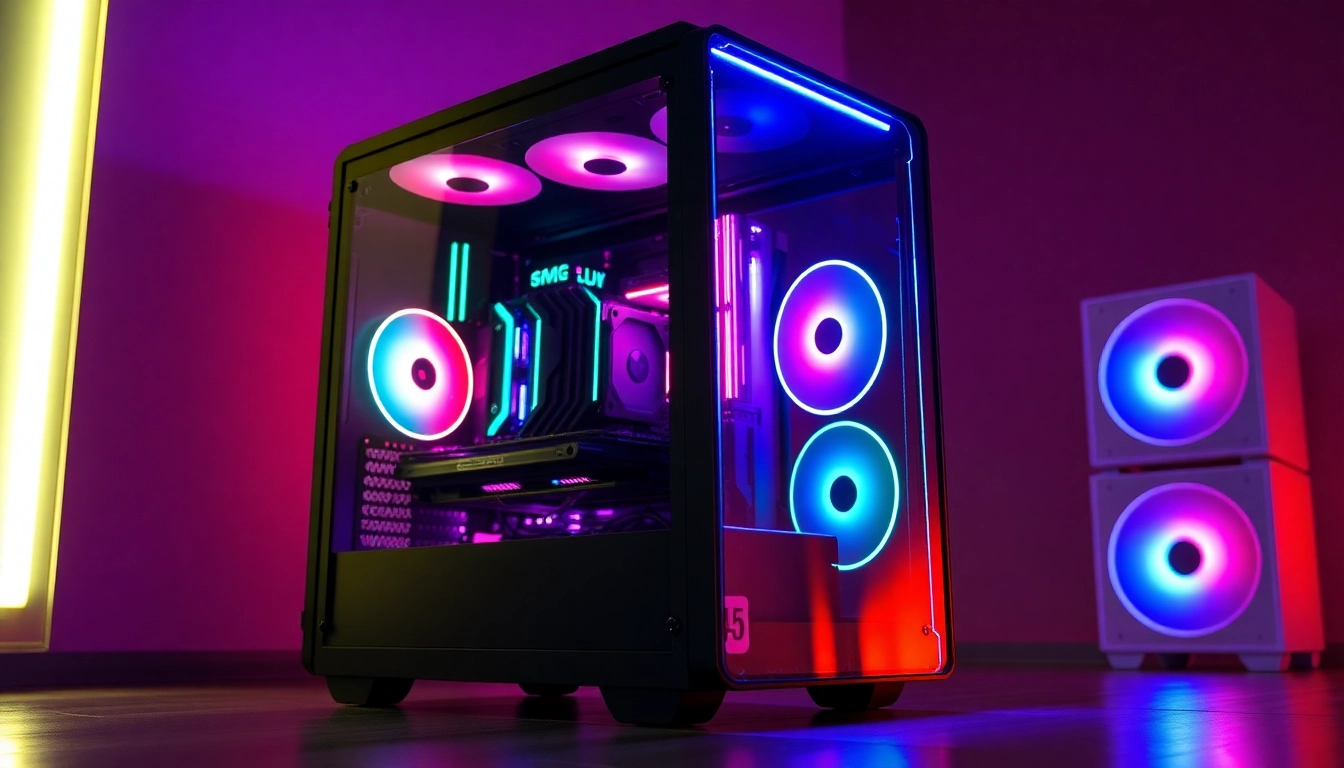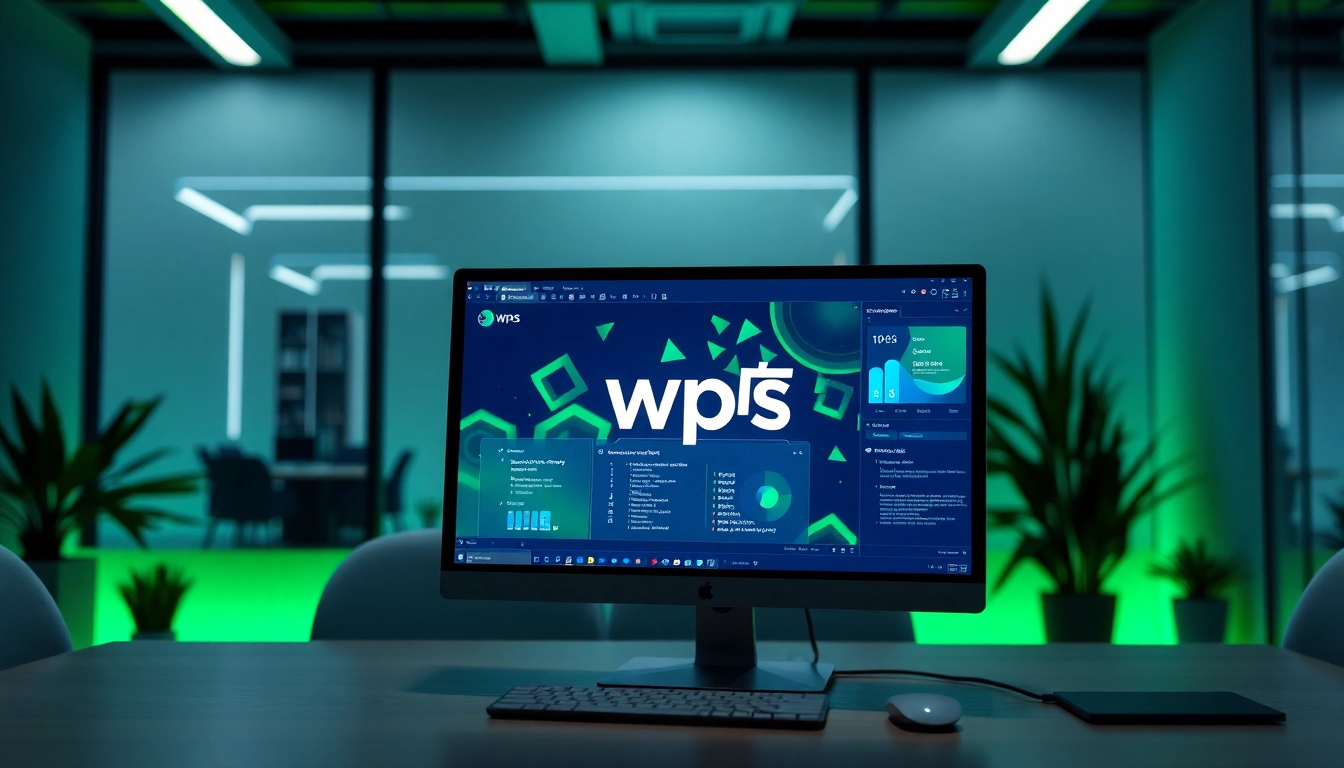Understanding Custom Gaming PC Cases
When it comes to the realm of gaming, having a robust and aesthetically pleasing setup can significantly enhance the gaming experience. A custom gaming pc case plays a crucial role in this equation. Unlike standard cases, custom options allow gamers to express their creativity while ensuring that functionality meets the specific needs of their gaming build. This article will delve deep into the nuances of custom gaming PC cases, exploring their unique features, essential qualities, and considerations when choosing the right case for your setup.
What Makes a Custom Gaming PC Case Unique?
Custom gaming PC cases are distinct from regular computer cases primarily due to their adaptability and unique design options. These cases not only house the vital components of a gaming rig but also serve as a canvas for artistic expression. Features that set custom cases apart include:
- Personalization: Custom cases allow for personalized designs, colors, and themes that reflect the user’s personality or gaming interests. This might range from sleek minimalism to vibrant, eye-catching patterns.
- Optimized Layouts: Many custom cases feature layouts designed specifically for enhanced airflow, cooling efficiency, and component accessibility. This ensures that gamers can maintain optimal performance during intense gaming sessions.
- Versatile Form Factors: Unlike standard cases, custom options can be tailored to various form factors—from compact mini-ITX cases to spacious full-tower designs, catering to different hardware configurations.
Essential Features of a Custom Gaming PC Case
When choosing a custom gaming PC case, it’s important to consider features that enhance both aesthetics and performance. Here are several key elements to look for:
- Cooling Support: Effective cooling solutions are essential for maintaining performance during extended gaming sessions. Look for cases that support multiple cooling configurations, including space for fans and liquid cooling options.
- Material Quality: The materials used in construction play a key role in durability and weight. Common materials include steel, aluminum, and tempered glass, each providing a different level of sturdiness and aesthetics.
- Expansion Options: A great custom case will offer ample room for future upgrades, so selecting a case with sufficient drive bays, PCI slots, and cable management features is crucial.
Choosing the Right Size for Your Setup
Size is a critical consideration when selecting a custom gaming PC case. A case must accommodate all components while fitting within your designated space. Here’s how to choose the right size:
- Form Factor Compatibility: Ensure that the case supports the motherboard dimensions (ATX, microATX, mini-ITX) you plan to use.
- Component Height and Length: Double-check the case dimensions against the height and length of your graphics card(s) and CPU coolers, as these elements can be restrictively tall or long.
- Room for Upgrades: Consider future expansions when selecting a size. Opt for a larger case if you anticipate adding more drives or components later.
Design Inspirations for Custom Gaming PC Cases
Designing a custom gaming PC case opens a world of possibilities. Creativity meets technology, allowing gamers to showcase their style and preferences. The following are popular design inspirations and themes to consider:
Exploring Popular Aesthetic Styles
Gaming cases come in various styles, each catering to different tastes. Some popular aesthetics include:
- Minimalistic: Simple lines, neutral colors, and straightforward designs offer a clean and sophisticated look.
- Futuristic: Sleek profiles with LED integrations and dynamic shapes that create an ultra-modern vibe.
- Retro: Designs that evoke nostalgia, often incorporating vintage components or styles reminiscent of classic gaming consoles.
- Artistic Themes: Custom artwork or decals representing favorite games, characters, or personal creativity.
Case Customization: Graphics and Themes
One of the main attractions of custom gaming PC cases is the ability to personalize graphics and themes. Gamers can often work with artists or use software to create custom graphics that may include:
- Vinyl Decals: Easy to apply and removable, these decals can range from simple logos to elaborate designs that cover large sections of the case.
- Laser Etching: An advanced method that engraves designs directly into materials, offering durability alongside aesthetic value.
- Custom Paint Jobs: Many enthusiasts opt for professional paint jobs that can match their gaming gear or setup.
Color Schemes that Stand Out
The color scheme of a custom gaming PC case can significantly impact its appeal. Here are some options that tend to draw attention:
- Monochromatic: Shades of a single color for a sleek, coordinated appearance.
- Bold Contrasts: Utilizing contrasting colors to create a striking visual impact, such as black and neon accents.
- Theme-Based Palettes: Colors that reflect a game’s art style or environment can tie the entire setup together.
Building Your Custom Gaming PC Case
Now that you have an understanding of what makes a custom gaming PC case special, let’s explore the process of building your own. Whether it’s your first build or a new venture, a methodical approach can lead to success.
Step-by-Step Guide to Assembly
- Gather Your Components: Ensure you have all necessary components—motherboard, CPU, GPU, RAM, storage, power supply, and cooling solutions.
- Prepare Your Workspace: A clean, well-lit space with a non-static surface will make assembly easier and safer.
- Install the Power Supply: Insert and secure the power supply in the appropriate section of the case, typically at the bottom or top.
- Mount the Motherboard: Align the motherboard with standoffs in the case and secure it with screws.
- Install the CPU and Cooler: Follow the manufacturer’s instructions to correctly install the CPU and its associated cooler.
- Install RAM: Carefully insert the RAM sticks into the motherboard slots until they click into place.
- Mount the GPU: Insert the graphics card into the appropriate PCI express slot, securing it to the case with screws.
- Connect Storage Drives: Install HDDs and SSDs, ensuring appropriate SATA connections.
- Wire Management: Tidy cables with zip ties for optimal airflow and aesthetics.
- Final Checks and Boot Up: Before closing the case, double-check connections, turn on the power, and ensure everything is functioning correctly.
Choosing the Right Components for Compatibility
Compatibility is paramount when building a custom gaming PC. Here’s what to keep in mind:
- Motherboard Size: Ensure your motherboard is compatible with the case size (e.g., ATX motherboards need larger cases).
- Power Supply Wattage: Calculate the total wattage required by all components to choose an appropriate power supply.
- Cooling Solutions: Verify that the cooling components fit within the case and provide sufficient thermal management.
Tools and Accessories for a Smooth Build
Having the right tools can simplify the building process. Essential tools include:
- Screwdrivers: A set of screwdrivers, particularly Phillips-head, is essential for assembly.
- Anti-Static Wristband: Prevent static discharge that can damage sensitive components.
- Cable Ties: Useful for managing cables and keeping your build neat.
- Flashlight or Headlamp: For illuminating dark areas within the case during installation.
Performance Considerations for Custom Gaming PC Cases
Mere aesthetics aside, a gaming PC case needs to perform well under load. This section will cover critical performance considerations to ensure your gaming rig runs smoothly.
Cooling Solutions: Airflow and Temperature Control
Effective cooling is vital for preserving the longevity and performance of your components. Here are cooling strategies to consider:
- Airflow Design: Look for cases with mesh front panels or multiple fan mounting points to promote airflow.
- Liquid Cooling Systems: For serious gamers or overclockers, liquid cooling may be the best solution for thermoregulation.
- Fan Placement: Strategically place fans for optimal intake and exhaust airflow—typically, front and bottom fans draw in air while top and rear fans expel it.
Noise Management Techniques
Noise control can significantly enhance your gaming experience. Consider these techniques to manage system noise:
- Sound Dampening Materials: Some cases feature built-in dampening materials to absorb noise.
- Quality Fan Selection: Invest in fans designed for lower noise output without sacrificing efficiency.
- Proper Fan Calibration: Utilize software to adjust fan speeds based on temperature variations to strike a balance between cooling and noise.
Future-Proofing Your Build
Future-proofing is essential in gaming, as technology advances rapidly. Here’s how to ensure your custom case remains relevant:
- Choosing a Larger Case: Always consider a case more significant than your current build to accommodate future upgrades.
- Component Compatibility: Select components that can be upgraded easily as new technology emerges.
- Invest in Quality: Buying high-quality components ensures they last longer and can adapt to future demands.
Buying vs. Custom Building a Gaming PC Case
When it comes to custom gaming PC cases, one must weigh the pros and cons of building a case versus purchasing an off-the-shelf option. This section compares these two approaches.
Benefits of Custom Building Your Case
The primary advantages of crafting your case include:
- Tailored Design: You create a case that fits perfectly within your aesthetic and functional needs.
- Component Familiarity: Building your case gives you a better understanding of components and their placements, improving future upgrades.
- Unique Features: Customize features that may not be available in retail options, such as specialized cooling and cable management.
Comparing Costs and Value
While custom builds can sometimes be more expensive than pre-built options, the value derived from personalization and performance often outweighs the initial investment. Here’s a breakdown of considerations:
- Cost of Materials: Factor in the cost of parts, tools, and any custom designs or aesthetic elements.
- Time Investment: Custom building can be time-consuming compared to buying a ready-made case.
- Resale Value: Custom-built options may retain value better due to their uniqueness and specialized features.
Recommended Brands and Services for Custom Cases
For those considering a custom gaming PC case, several brands and services stand out in the market:
- HYTE: Known for their innovative case designs catering to gamers’ needs.
- NZXT: Offers a range of customizable cases with excellent performance and aesthetics.
- Parvum Systems: Specializes in creating unique acrylic and glass cases.




